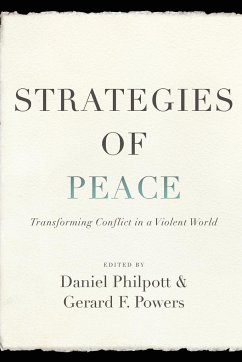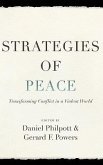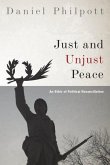How can a just peace be built in sites of genocide, massive civil war, dictatorship, terrorism, and poverty? In Strategies of Peace, the first volume in the Studies in Strategic Peacebuilding series, fifteen leading scholars propose an imaginative and provocative approach to peacebuilding. Today the dominant thinking is the "liberal peace," which stresses cease fires, elections, and short run peace operations carried out by international institutions, western states, and local political elites. But the liberal peace is not enough, the authors argue. A just and sustainable peace requires a far more holistic vision that links together activities, actors, and institutions at all levels. By exploring innovative models for building lasting peace-a United Nations counter-terrorism policy that also promotes good governance; coordination of the international prosecution of war criminals with local efforts to settle civil wars; increasing the involvement of religious leaders, who have a unique ability to elicit peace settlements; and many others--the authors advance a bold new vision for peacebuilding.
This will be the first volume in the Studies in Strategic Peacebuilding series. The editors have brought together fifteen leading scholars of peacebuilding to rethink the basic goals and methods of conflict resolution. The prevailing approach, the authors argue, is far too narrow. They argue instead for a holistic approach that they term strategic peacebuilding, which aims not only for stability but for a comprehensive solution that incorporates apology, forgiveness,reconciliation, and, most crucially, religion.
Hinweis: Dieser Artikel kann nur an eine deutsche Lieferadresse ausgeliefert werden.
This will be the first volume in the Studies in Strategic Peacebuilding series. The editors have brought together fifteen leading scholars of peacebuilding to rethink the basic goals and methods of conflict resolution. The prevailing approach, the authors argue, is far too narrow. They argue instead for a holistic approach that they term strategic peacebuilding, which aims not only for stability but for a comprehensive solution that incorporates apology, forgiveness,reconciliation, and, most crucially, religion.
Hinweis: Dieser Artikel kann nur an eine deutsche Lieferadresse ausgeliefert werden.








